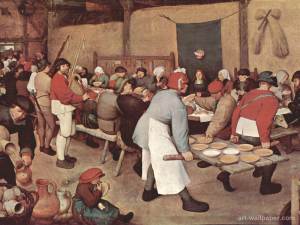Exploring the Word:
Sermon – October 26th 2014
20th Sunday after Pentecost
By Roland Legge
1 Thessalonians
Matthew 22:34-46
We live in a very complex world. We are often trying to simplify our lives. So it can be very tempting to join a church that will tell you what to do in every circumstance. To paint the world as though it is black and white. To paint a world where everything is either good or evil, clean or dirty.
Why should we believe in our/Christian Jewish religion? Jesus said religion is not there to be our moral code which defines who is good and who is bad. It is not there to turn us into obedient people. Rather it is there to compel us to love with all our heart.
In his time, Jesus wanted people to get down to the basics of their faith. Why? Because people were getting confused. People were getting confused because of the hundreds of rules that had been created to help people to stay on the narrow path of faith. It almost became impossible to remain faithful because you couldn’t help but break a rule because there were so many. Sadly those who were privileged used these rules to keep their positions of power and the money in their pockets. Those in power were also using the rules to rob the masses of their potential to confront the powers and principalities.
So Jesus reminds his people of the great commandment that was passed onto him through his Jewish faith community. He says that if you live by this commandment you will have fulfilled the Law.
He said to him, “‘You shall love the Lord your God with all your heart, and with all your soul, and with all your mind.’ This is the greatest and first commandment. And a second is like it: ‘You shall love your neighbor as yourself.’ On these two commandments hang all the law and the prophets.” —Matthew 22:34-40
Jesus says along with other Jews that the great commandment is one that sums up all their beliefs. It gets to heart of how we are to live our lives faithfully. If you love the Lord your God, you love yourself and love your neighbour then you are meeting all the expectations of God. Jesus took it even further in saying that we should love all people whether they are Jew or not. When you have done this you have truly fulfilled the Law.
How do we do this? I appreciate how author Stacy Martin expresses this in an article she wrote for Sojourners magazine. She shows how we can remain faithful through the following of the Great Commandment which includes these spiritual gifts.
Grace is the first gift of Christian faith. For me grace is all about giving myself and others the room to learn through the trials and errors of life. It is about reminding ourselves that none of us are perfect. It is about acknowledging the light of God in each person we meet. It is being open to God/Spirit working miracles of transformation through our lives even when at times we feel there is little hope.
Relationships is another gift of faith. It is acknowledging that we relate to the Created order through God. How God is always part of the picture. So whatever we choose to do in this world whether that is mining, forestry, and/or trying to support our families we cannot create a hierarchy of God’s Creation to justify its destruction. It is all GOOD! I believe that when ever we show our love for God, ourselves and each other we will treat the world with greater compassion. The world indeed will get closer to being the Kindom of God.
Forgiveness is another gift of faith. Acts toward forgiveness free us up to keep living out the great commandment. Acts towards forgiveness free our children from holding on to the same negative/destructive feeling creating new opportunities for healthier relationships. Acts of forgiveness open up our hearts to love some of the more challenging people in our lives.
Community is the last gift of faith. God’s call to community reminds us that we cannot live without each other.In a world where we live with the misconception that we can be successful on our own we are challenged to say with conviction that we need each other. That when one person is hurting we all hurt. When one person is celebrating we all celebrate. We are the body of Christ! Every one of us has something to offer this world. Every one of us is loved by God!
Living out the Great Commandment is a lifelong goal. It is never easy because sometimes we will miss the mark. However, I dream of a more loving world. This isn’t a pie in the sky dream! It is a dream that becomes true day in and day out. Every time you and I intentionally choose to live in the way of Jesus, loving God, loving ourselves and each other, the world will continue to be transformed.
One way that I try to live out this commandment is to use the gifts I have been given. I believe that is true for all of us. So I invite all of us in our congregation to reflect on how we continue to live out love in Foam Lake and area and the rest of the world. How do we show the grace of God? How do we emphasize the importance of community so we can find a greater richness in life and be motivated to share our gifts with our brothers and sisters around the world? How do we show the power of forgiveness? A great place to start would be to forgive ourselves so we can feel the expansive love of God within us and around us.
Then, how do we forgive others while not allowing ourselves to be a door mat to be abused again and again! Finally the last one is community. How do we as a congregation seek to be community? How do we create space for truly sharing who we are with others so we can be there for each other in all the ups and downs of life?
I end with this thought. I have found it important to forgive myself. I have been my own greatest enemy. I continue to learn that it is okay not to be perfect. I continue to learn that I don’t always need to have the answers. But the miracle is that the more I come to live in harmony and love with myself I find it easier to open my heart to others.
I invite you to take some time in this coming week to spend some intentional time forgiving yourself. If you need some help, do it with a friend you love. If you need some help, pray for help from the Spirit. Always remember that God loves you unconditionally. Nothing can every change the mind of God.



